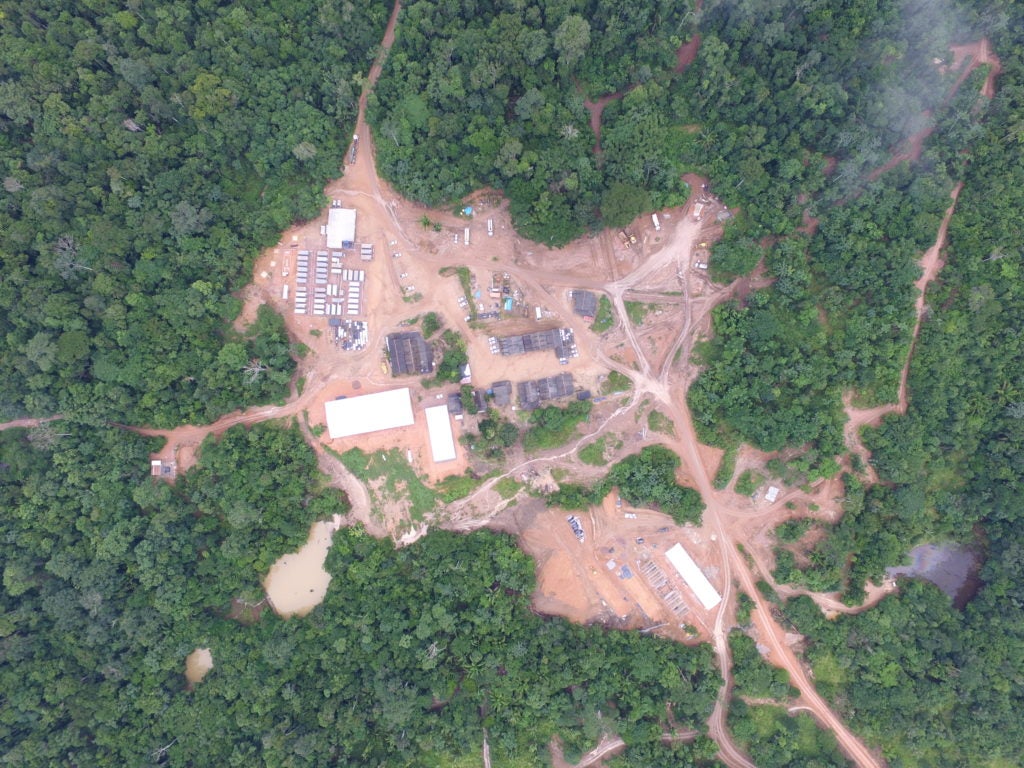
UK-based company Serabi Gold has been found to be conducting mining operations on disputed land in the Brazilian Amazon rainforest, including blasting 4.5 metre-wide tunnels and driving trucks to and from the site.
The investigation published on Tuesday, was conducted in collaboration by news outlet The Guardian, Amazon-based journalism platform Sumaúma and Unearthed, Greenpeace’s investigative journalism platform.
The group found that the site on which Serabi Gold has been conducting operations was “developed through a deal with alleged land grabbers”. Government land agency Incra has claimed to own the land and told reporters that it had not received consultation before mining commenced.
Local populations say that they too were not consulted before the operations began at the Coringa site. Serabi maintains that it started a consultation process with indigenous communities last year, but it is yet to be completed.
Serabi Gold told Mining Technology that: “The mine is not located within the indigenous territory and is approximately 20 kilometres from the nearest village”.
Until 2003, the site of the mine was a part of Baú indigenous land, where the Kayapó Mekrãgnoti people live. In 2006, Incra set aside this part of the Baú land for settlement by small-scale family farmers.
Additionally, Incra claims to be analysing a request from Serabi to operate in the area. In an email, Incra told the reporters: “To date, Incra has not authorised research and mining operations in the Terra Nossa settlement”.
Incra claims that an individual appropriated the land despite the 2006 division.
Canadian mining company Chapleau reportedly gave the individual a one off payment of R$21,428 ($4,222), as well as monthly payments of R$1,428 ($281) and royalties from any ore extracted in exchange for the land. Chapleau is now wholly owned by Serbai, as of 2017.
Mining land ownership disputed by local indigenous communities
Serbai reported 1,013 ounces (28.7 kg) of gold from Coringa last year. According to The Guardian, the company appears to operate without consent from the government or local indigenous groups, and without payment to those who claim the land.
Serabi told reporters that it “operates and complies with the Brazilian legal mining framework. We have all the required permits for our trial mining operation at Coringa and we are completely comfortable with our legal position and behaviour in relation to the ongoing disputed land ownership within which Coringa sits”. The company reiterated this statement to Mining Technology.
Bepdjo Mekrãgnotire, a member of the Kayapó people, told Unearthed he first became aware the mine was in operation due to the sound of explosives. He said: “We were collecting Brazil nuts last year and the noise scared us. That’s when we found out […] the company should have consulted us before, because we have the right to speak, to charge”.
Incra representative Antônio José Ferreira da Silva told Unearthed: “It is a region of great tension due to land grabbing, marked by deforestation and violence against small farmers and traditional peoples”.
The area has seen frequent tensions between land-grabbers in support of previous President Jair Bolsonaro and his support of so-called wild-cat mining, and local communities.
Mike Hodgson, CEO of Serabi, stated in a press release published on Wednesday that the company is progressing “imminently” with an “indigenous study” which it hopes will “be positively received by the various government agencies and will result in the award of the installation License in the coming months”.
The company stated that: “The conclusion of the study will be discussed with the indigenous communities and the government agency FUNAI”.



